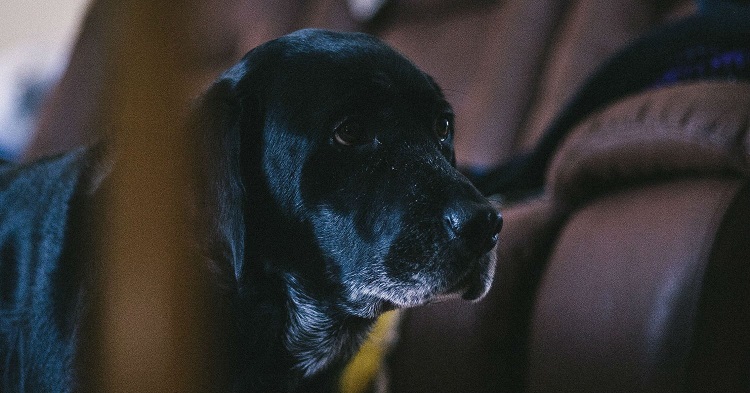Our older dog has been diagnosed with Laryngeal Paralysis. Are there any other treatments for this condition apart from surgery?
Original Question: Good morning. Our dog Buddy has been diagnosed with lar par. He is 13 so the surgery option was not recommended. He has been put on a round of steroids. I am wondering are there any other treatments to make him more comfortable? - Anonymous
 May 3, 2018
May 3, 2018
Hi there,
Thanks for your question.
Laryngeal Paralysis is the failure of the arytenoid cartilage, which is the flap at the top of the airway, to properly open. These structures close together when we are eating and drinking so that food and water doesn’t pass down into our airway. They then open to allow us to breathe. When a dog has this condition, the flaps don’t open well which restricts airflow and makes it really difficult to draw in a breath. It is a very concerning condition that can advance and restrict airflow so much that a dog’s ability to breath is so restricted that they can die.
It is a neurological condition whereby the nerves that control these flaps lose their ability to function. The cause of it is not fully understood or identifiable and it is commonly considered to be iatrogenic, meaning it has no known cause. There has been speculation that hypothyroidism may contribute to the condition but it is debatable. Certainly, any surgery in the area of the neck that disrupts the nerves there could cause it. It is largely seen in the Labrador Retrievers suggesting that there is a genetic basis to the disease.
As for your question about treatment, there are a few options:
For extremely early and mild cases, management can help. Avoiding the use of a harness around the neck, only gentle exercise like walking, avoiding exercising when it’s hot out, and the use of tranquillizers can all reduce the chance of respiratory distress and severe breathing difficulty.
Beyond this, the main option is surgery as has been recommended to you. I understand that it seems very invasive, expensive and a lot to put your dog through, but it has a tremendously high success rate and the risk of anesthetic complications is far outweighed by the benefit of the surgery which is often life-saving. Keep in mind that this surgery is almost exclusively done on patients that are the same age as your dog because that is the age when they have the condition to this degree. I would not let the fear of the anesthetic be the reason you do not move forward with the surgery. The expense and the emotional distress on you is the more challenging aspect of this.
There are not many other reasonable options I’m afraid.
If I were to extend myself and give you advice….as a doctor the advice is simple. Do the surgery because it will correct the condition.
If I were advising a friend, I would say this. Yes, it’s expensive and taxing to go through, but in the big picture of your life and relationship with your dog, doing this means fighting for them and I truly believe you’ll never regret it. The money and stress will be forgotten and of little impact later in life, but the pride and knowledge you’ll have that you went to bat for your dog, will never go away.
If you can’t go through with it, don’t let any guilty feelings creep in. Its very challenging and you’ve given this dog a lifetime of love. It’s been very lucky for that.
I hope this helps,
Dr. Greenway
Disclaimer: healthcareforpets.com and its team of veterinarians and clinicians do not endorse any products, services, or recommended advice. All advice presented by our veterinarians, clinicians, tools, resources, etc is not meant to replace a regular physical exam and consultation with your primary veterinarian or other clinicians. We always encourage you to seek medical advice from your regular veterinarian.

